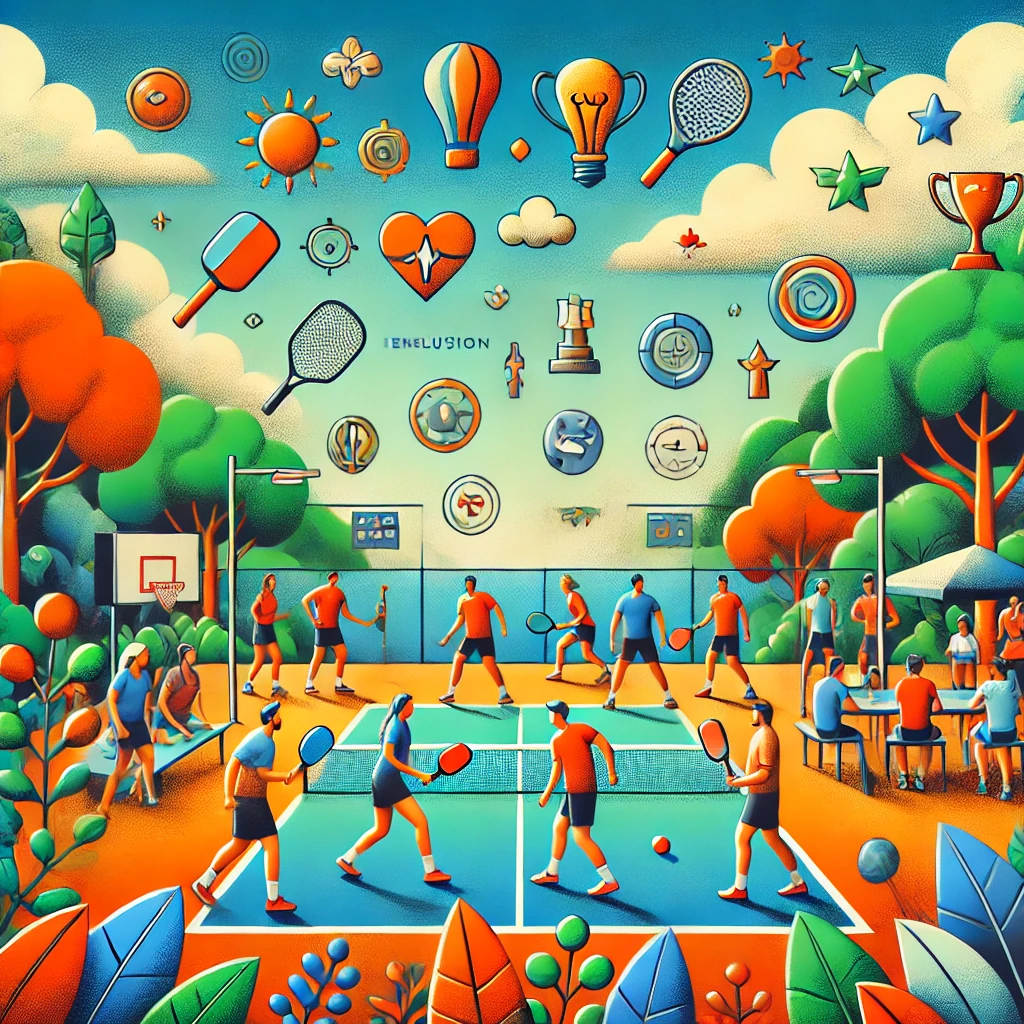
Ten Ways Pickleball Promotes Leadership Skills (The Serious Leisure Lens)
Pickleball isn’t just a fun and fast-paced sport—it’s also a great way to learn leadership skills. Through Serious Leisure Theory (SLT), we can see how the dedication, social interaction, and personal growth involved in pickleball help you become a better leader. Whether you’re a pro or just starting, here are ten ways pickleball can help you develop leadership skills:
1. Skill Mastery Builds Confidence: When you learn new pickleball skills, like serves, volleys, and dinks, you feel a sense of accomplishment. This confidence can help you lead others.
2. Leadership Connection: When you master pickleball skills, you become more confident and self-assured. This confidence can inspire and motivate others.
3. Communication is Key: In pickleball, especially in doubles, you have to communicate with your partner constantly. This helps you learn how to communicate effectively and listen to others.
4. Taking on Roles and Responsibilities: In pickleball, you often take on roles like team captain, tournament organizer, or club leader. These roles help you learn how to plan, make decisions, and motivate others.
5. Resilience Through Challenges: Pickleball can be a challenging sport, and you’ll learn how to bounce back from setbacks. This resilience can help you lead others through tough times.
Pickleball is a game that teaches players valuable lessons about 6.) resilience and perseverance. They face challenges like losing matches and dealing with different opponents, which helps them build toughness and keep going.
7. Leadership is also a big part of pickleball. Players learn how to stay calm under pressure and make quick decisions when things get tough. These skills are important for leaders who have to handle complex situations.
Pickleball also helps players develop 8) strategic thinking and 9) problem-solving skills. They have to think ahead and adjust their strategies during the game, which is a great way to learn how to think critically.
Finally, pickleball teaches players how to be 10) emotionally intelligent and empathetic. They learn how to manage their emotions, stay positive even when they lose, and show kindness and understanding to their partners and opponents. These skills are important for leaders who want to build strong relationships and create positive work environments.
Pickleball is more than just a game; it’s a way of life that teaches valuable leadership skills. Players often volunteer to coach beginners, organize tournaments, or manage club activities. This hands-on experience helps them practice mentorship, teaching, and project management—essential skills for leadership.
Regular players develop a strong sense of identity and purpose through pickleball. They embrace values like sportsmanship and teamwork, which align with leadership qualities like vision, integrity, and the ability to inspire others.
Beyond the court, pickleball offers long-term benefits like improved physical health, mental well-being, and social connections. These benefits translate into leadership qualities like lifelong learning, self-improvement, and the ability to adapt to new challenges.
So, grab your paddle, hit the court, and start leading the way! Pickleball is not just a game; it’s a path to effective leadership in all aspects of life.
Here are some interesting studies on youth leadership, sports, and physical education:
- Gould and Voelker (2012) explored how sports and physical education can boost youth leadership.
- Sarkar and Fletcher (2014) looked at how sports performers cope with stress and what helps them stay resilient.
- Memmert and Harvey (2010) studied non-specific tactical tasks in invasion games.
- Laborde, Dosseville, and Allen (2016) examined emotional intelligence in sports and exercise.
